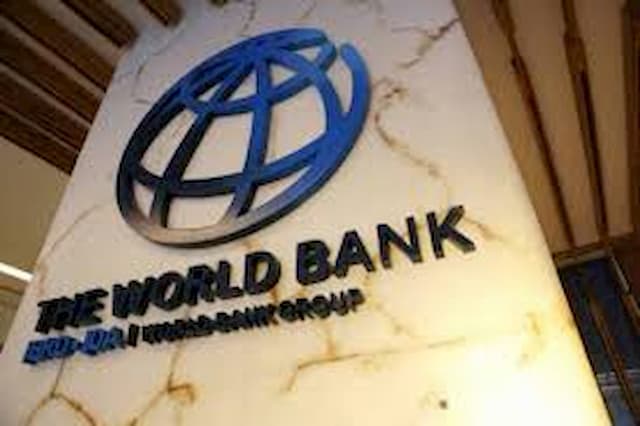Our Terms & Conditions | Our Privacy Policy
World Bank Upgrades Nigeria’s Growth Outlook to 3.6%, Signals Optimism Amid Global Slowdown
The World Bank has revised its outlook for Nigeria’s economy upward, projecting a 3.6 per cent expansion in 2025, a 10-basis-point increase from its January forecast. This marks a divergence from the International Monetary Fund’s (IMF) more cautious stance and places Nigeria ahead of the global growth average, even as the world economy braces for its weakest non-recessionary performance in nearly two decades.
The upgrade was contained in the World Bank’s latest Global Economic Prospects report released this week. It forecasts Nigeria’s gross domestic product (GDP) growth rising steadily to 3.7 per cent in 2026 and 3.8 per cent by 2027, outperforming last year’s 3.4 per cent growth rate.
In contrast, the IMF, in its April World Economic Outlook, downgraded Nigeria’s growth forecast from 3.2 per cent to 3.0 per cent, citing rising global trade tensions and uncertainties surrounding crude oil—Nigeria’s main export commodity.
Nigeria’s growth last year was largely driven by robust performance in the financial services and telecommunications sectors. Although these are considered non-inclusive sectors in terms of employment generation, the growth—nearly one percentage point above the population growth rate—suggests a marginal improvement in per capita income and general welfare.
If achieved, a 3.6 per cent growth rate would be among the highest Nigeria has recorded in the past decade, but it still falls short of the pace needed to meet the federal government’s $1 trillion economy target. Analysts note that at the current trajectory, reaching that milestone could take more than a decade, even with the nominal growth rate of 17 per cent recorded last year.
Nigeria’s forecast places it slightly below the average for Sub-Saharan Africa, which the World Bank pegs at 3.7 per cent, but well above the global average of 2.3 per cent. Comparatively, South Africa, Africa’s second-largest economy, is expected to grow by just 0.7 per cent this year, with modest improvement to 1.3 per cent by 2027.
The World Bank noted Nigeria’s improved fiscal position, driven by the removal of the foreign exchange subsidy, reforms in revenue administration, increased collections at the sub-national level, and higher remittances from government-owned enterprises. However, inflation remains a concern, staying well above the Central Bank’s target and pre-pandemic levels despite recent moderation.
The Bank also highlighted broader optimism for large energy-exporting emerging markets such as Nigeria, Russia, and Saudi Arabia, attributing potential upside to domestic reforms and diversification beyond oil.
Globally, however, the World Bank warned of a sluggish outlook. It said heightened geopolitical tensions, trade fragmentation, and policy uncertainty could push global growth this year to its slowest pace since 2008 outside of periods of recession. Nearly 70 per cent of countries—across income brackets and regions—have seen their growth forecasts downgraded.
The Bank projects that growth will slow in almost 60 per cent of developing economies in 2025, averaging 3.8 per cent, before inching up to 3.9 per cent in 2026 and 2027. If these projections hold, the first seven years of the 2020s would mark the slowest period of global growth since the 1960s.
Images are for reference only.Images and contents gathered automatic from google or 3rd party sources.All rights on the images and contents are with their legal original owners.



Comments are closed.